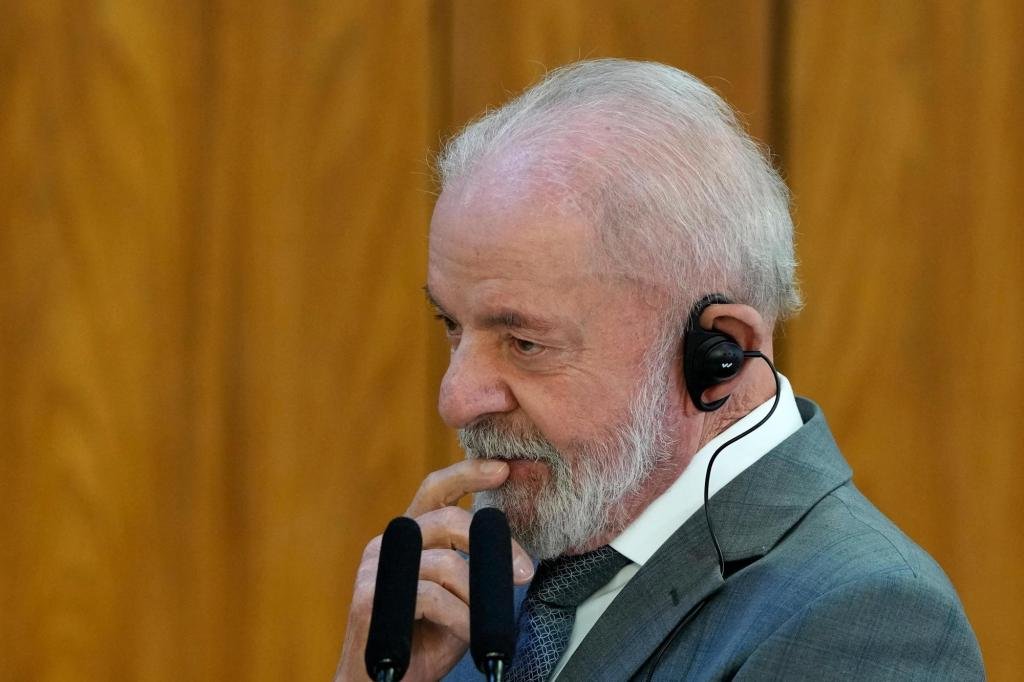Tariff Tensions: Brazil’s Standoff with the U.S. Over Bolsonaro
As the sun set over the vibrant streets of Rio de Janeiro, Brazilian President Luiz Inácio Lula da Silva faced a monumental decision, one that could alter the course of U.S.-Brazilian relations. On July 10, 2025, Lula announced plans to impose retaliatory tariffs on the United States, ignited by President Donald Trump’s threat to raise import taxes by 50% in response to Brazil’s ongoing trial against former President Jair Bolsonaro. Charged with attempting to subvert democracy, Bolsonaro’s fate has stirred a complex web of international politics, pitting trade interests against national sovereignty.
A Looming Trade War?
Lula’s declaration echoed through diplomatic channels, threatening a trade war reminiscent of tensions between the U.S. and China. “If there’s no negotiation, the reciprocity law will be put to work,” Lula asserted during an interview on TV Record. “If he charges 50% tariffs from us, we will charge 50% from them.” His words underscored a resolve to defend Brazil’s sovereignty against perceived U.S. interference.
Erosion of Diplomatic Norms
Experts suggest this could be a watershed moment for international diplomacy. “When tariffs become a tool for political maneuvering, as Trump has done, it undermines the very foundation of global trade agreements,” says Dr. Elena Rodrigues, an international relations professor at the University of São Paulo. “Opening a front in Brazil’s domestic politics undermines the essence of diplomacy.”
- Potential escalations could affect various sectors, including agriculture, which is vital for Brazil’s economy.
- Retaliatory tariffs could lead to job losses in both nations.
- Long-term repercussions may arise from strained ties between Brazil and other South American economies.
Trump’s Political Intrusion
The context of Trump’s tariffs unfolds amidst a broader narrative of political turmoil. Bolsonaro, a staunch ally of Trump, is embroiled in accusations of attempting to overturn the results of the 2022 elections. Trump’s letter, characterized by Brazilian analysts as a political “witch hunt,” seeks to bolster Bolsonaro’s standing while critically engaging Brazil’s judiciary. “There’s nothing Lula or Brazil can do about Bolsonaro’s trial,” argues Carlos Melo, a political science professor at Insper University. “Any change in that would be Brazil’s capitulation.”
Trade Freedoms at Risk
Brazil’s contingent of lawmakers and diplomats interpreted Trump’s actions as an encroachment on their sovereignty. “This is not merely about trade; it’s about respect for our judiciary and our sovereignty,” stated Gleisi Hoffmann, Brazil’s minister for institutional relations. “What Trump fears is the strengthening of commercial relations in the Global South.” If unchallenged, such a precedent could herald a worrying trend that raises questions about the integrity of international law.
Trade Negotiations in Limbo
The immediate aftermath of Trump’s threats has sent Brazil’s foreign ministry scrambling. Negotiations aimed at softening the impact of Trump’s original tariffs, implemented under the 1977 International Emergency Economic Powers Act, have now become uncertain. “These discussions are up in the air,” confirmed a source in Brazil’s foreign ministry. “We strongly believe in the necessity for dialogs, but it’s becoming increasingly complicated.”
The Ripple Effect on Political Dynamics
Intriguingly, this political conflict has sparked an unusual sense of unity within Brazil, a country historically marred by political polarization. Editorial boards that were once critical of Lula now find common ground. A prominent editorial in O Estado de S. Paulo described Trump’s involvement as “a mafia thing,” acknowledging Lula’s firm stance as commendable. “Even for his standards, the letter sent to the Brazilian government crossed every boundary,” it stated.
Lula’s government, sensing a potential political advantage, appears ready to recalibrate its strategy. Andre Pagliarini, a historian and international relations expert, noted, “Trump’s interference could backfire and bolster Lula’s standing by portraying Bolsonaro as the instigator of economic woes.” This dynamic continues to evolve as the trial against Bolsonaro moves forward, with potential ramifications for electoral politics in Brazil.
Legal and Economic Implications
The pushback against Trump’s tariffs is not without its challenges. Legal experts examine the implications of a U.S. court ruling that found Trump exceeded his authority in imposing tariffs without congressional approval. This case could serve as a precedent, influencing future diplomatic and trade negotiations. Democratic Senator Ron Wyden, a vocal opponent of the tariffs, stated, “This is a blatant effort to settle personal scores at the expense of economic stability.”
As Brazil braces for potential retaliatory measures, the prospect of a protracted conflict looms large, particularly given Trump’s ongoing appeals and the uncertainty surrounding economic stability. Analysts worry that the potential for cascading tariff increases could exacerbate inflationary pressures in both nations, leading to broader economic repercussions.
Decay of Trust in International Relations
Trump’s entanglement in Brazilian affairs evokes larger questions about the governance of international politics. “What we’re witnessing is not just a conflict between two leaders; it’s indicative of a decaying trust in the system,” warns Dr. Sofia Campos, a political theorist based in Brasília. “Countries may begin to see tariffs as a legitimate tool for meddling in each other’s domestic politics.”
Meanwhile, Brazil’s tempestuous political narrative continues to engage its citizens and catch international attention. As Lula crafts his next moves, he also inadvertently serves as a bulwark against a looming crisis in international diplomatic norms, crystallizing a moment that could reshape Brazil’s future. Underneath the negotiations and countermeasures lies a complex entanglement of national identity, global trade, and the intricate dance of power that defines our era.





